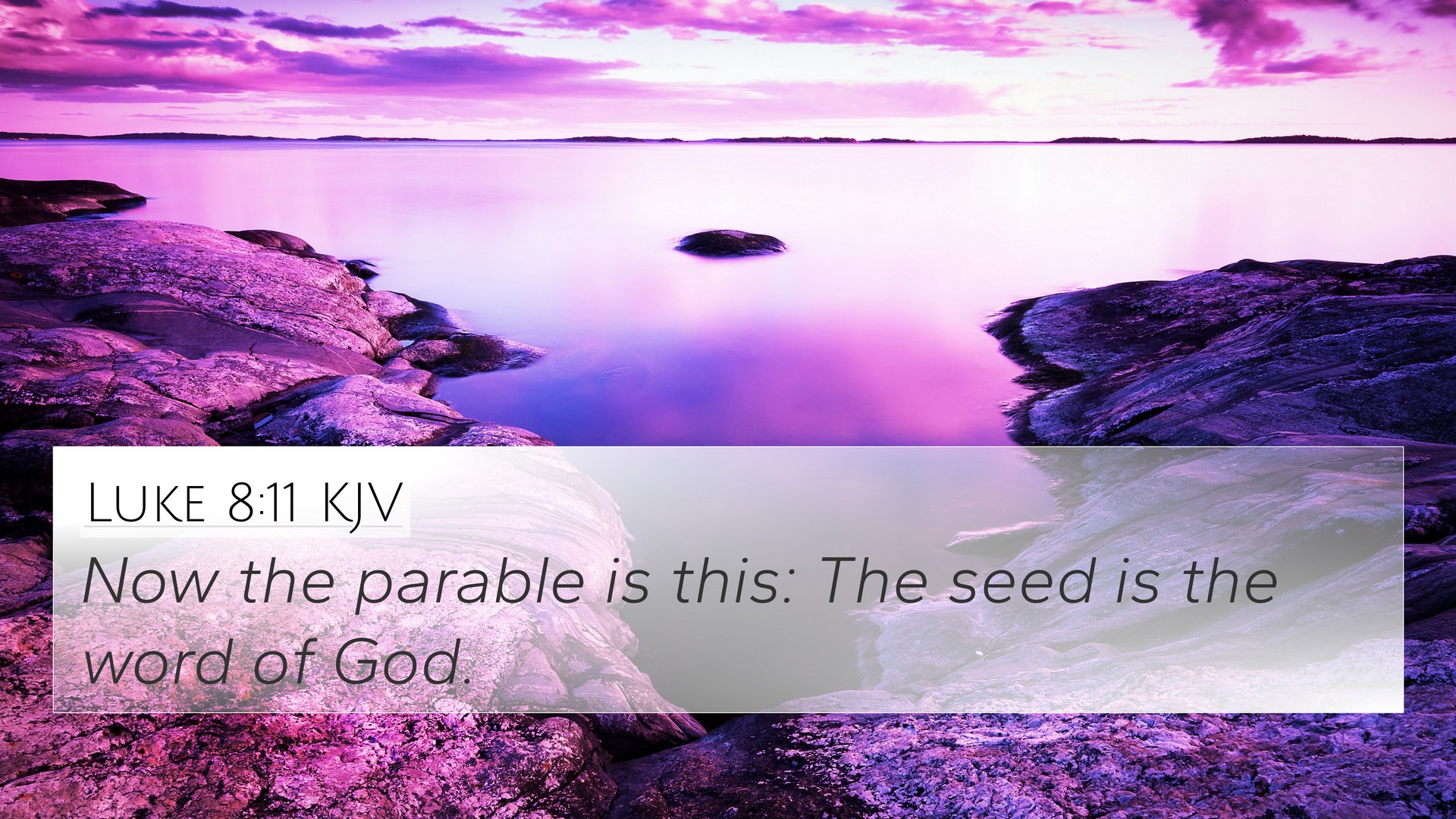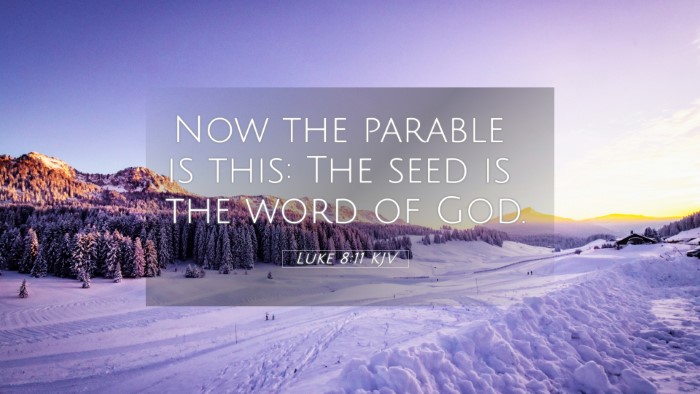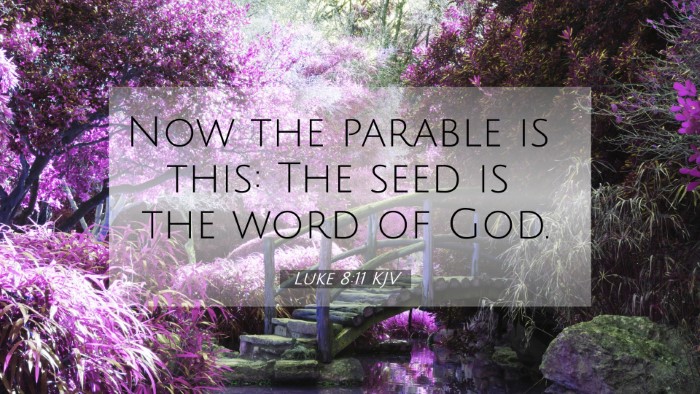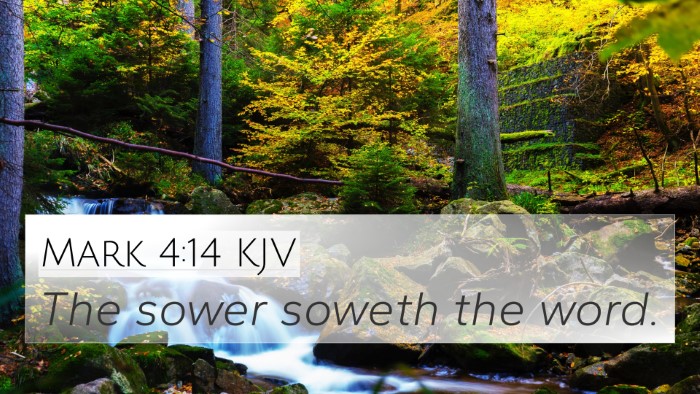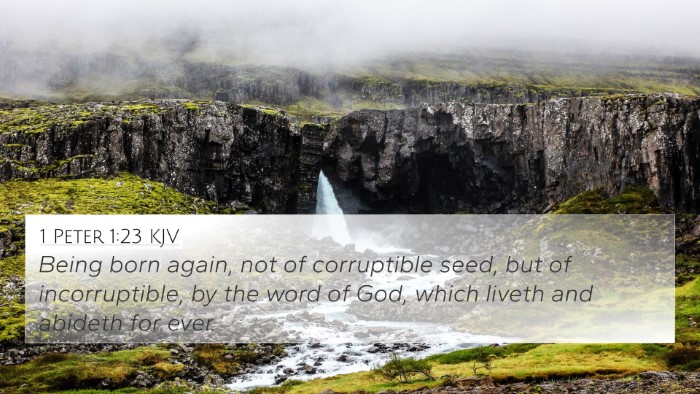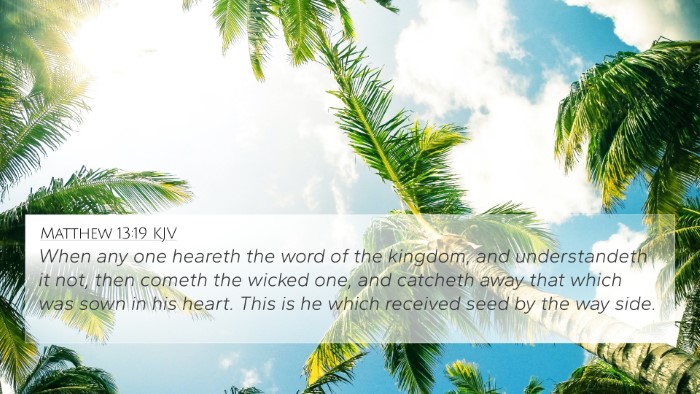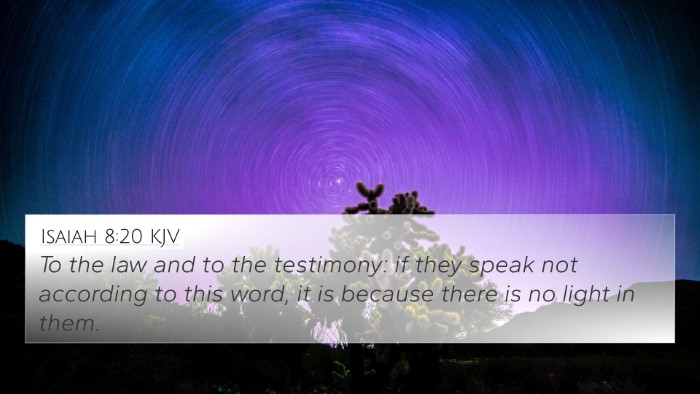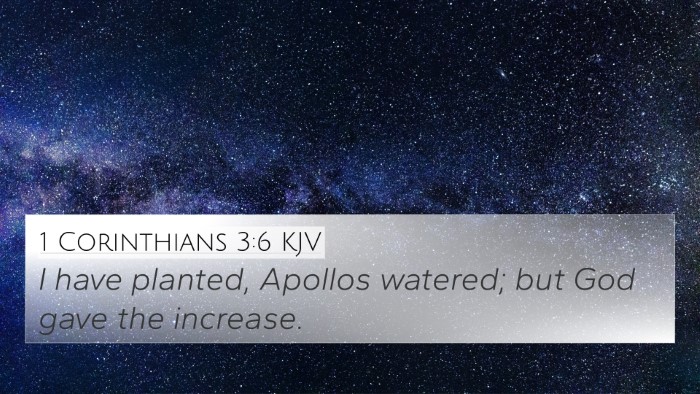Understanding Luke 8:11
Luke 8:11 states, "Now the parable is this: The seed is the word of God." This verse is a foundational component in the interpretation of one of Jesus' most significant parables, the Parable of the Sower. Delving into the meaning of this passage unveils several theological and practical insights regarding the reception of God's word in different hearts.
Literal Interpretation
In this verse, Jesus clarifies the symbol of "seed" within the context of the parable. Matthew Henry notes that Jesus uses the metaphor of seed to convey the nature of the gospel message and its transformative power when planted in the right environment. The "word of God" encompasses all divine scriptures and teachings, inviting believers to reflect on their responsiveness to God’s guidance.
Theological Insights
Albert Barnes emphasizes that the seed represents the divine truth conveyed by God, which is intended to bring life and growth to those who receive it. This view stresses the importance of not just hearing the word but digesting and acting upon it, reflecting on how spiritual growth is intimately connected to one's engagement with scripture.
Practical Application
Adam Clarke explains that the effectiveness of the seed—God's word—depends upon its reception. Diverse responses from individuals illustrate the various ways people may receive biblical truths, ranging from acceptance to outright rejection. This invites readers of the text to evaluate their own hearts and how they interact with scriptural teachings.
Cross-References for Deeper Understanding
To fully grasp the implications of Luke 8:11, one can examine several cross-references, which offer an enriched understanding of how the word of God functions throughout the scriptures. Here are some relevant cross-references:
- Matthew 13:19 - Explains the meaning of the seed that falls on the wayside, relating to those who fail to understand God's word.
- Mark 4:14 - Reinforces the message that the sower sows the word, which highlights the act of spreading the gospel.
- John 1:1 - Describes the Word as God Himself, establishing the divinity and foundational significance of God's message.
- Isaiah 55:11 - Illustrates that God’s word will not return void, emphasizing the power of divine truth to accomplish its purpose.
- Romans 10:17 - States that faith comes by hearing, which directly connects to the role of God's word in producing faith.
- James 1:21 - Encourages believers to receive the implanted word, which can save souls, emphasizing acceptance in one’s heart.
- 1 Peter 1:23 - Declares that believers are born again by the imperishable seed of God’s word, reinforcing the life-giving nature of the scriptures.
Thematic Connections
The themes surrounding Luke 8:11 extend into a wider framework of scriptural interpretation. Using tools for Bible cross-referencing, individuals can explore connections between Bible verses, linking scriptures to unravel deeper meanings.
Comparative Bible verse analysis reveals how the concept of God’s word as a seed is echoed across the Old and New Testament. For instance, the agricultural imagery of planting and harvesting frequently appears, linking back to God's promises and the responsibilities of believers as recipients of His word.
Methods for Engaging with Scripture
For those seeking to deepen their understanding of biblical texts, utilizing a Bible concordance or Bible cross-reference guide can be beneficial. These tools can enhance your cross-reference Bible study by helping you identify thematic connections and explore inter-Biblical dialogue.
Consider employing cross-referencing Bible study methods to facilitate a comprehensive grasp of how biblical themes resonate throughout scripture, allowing insights from one passage to illuminate another.
Conclusion
Luke 8:11 serves as both a pivotal verse and a lens through which one can explore numerous connections inherent in scripture. By engaging with cross-referenced verses, understanding the themes woven through biblical texts, and employing effective study tools, believers can cultivate a richer relationship with the word of God, ensuring the seed takes root and bears fruit in their lives.
